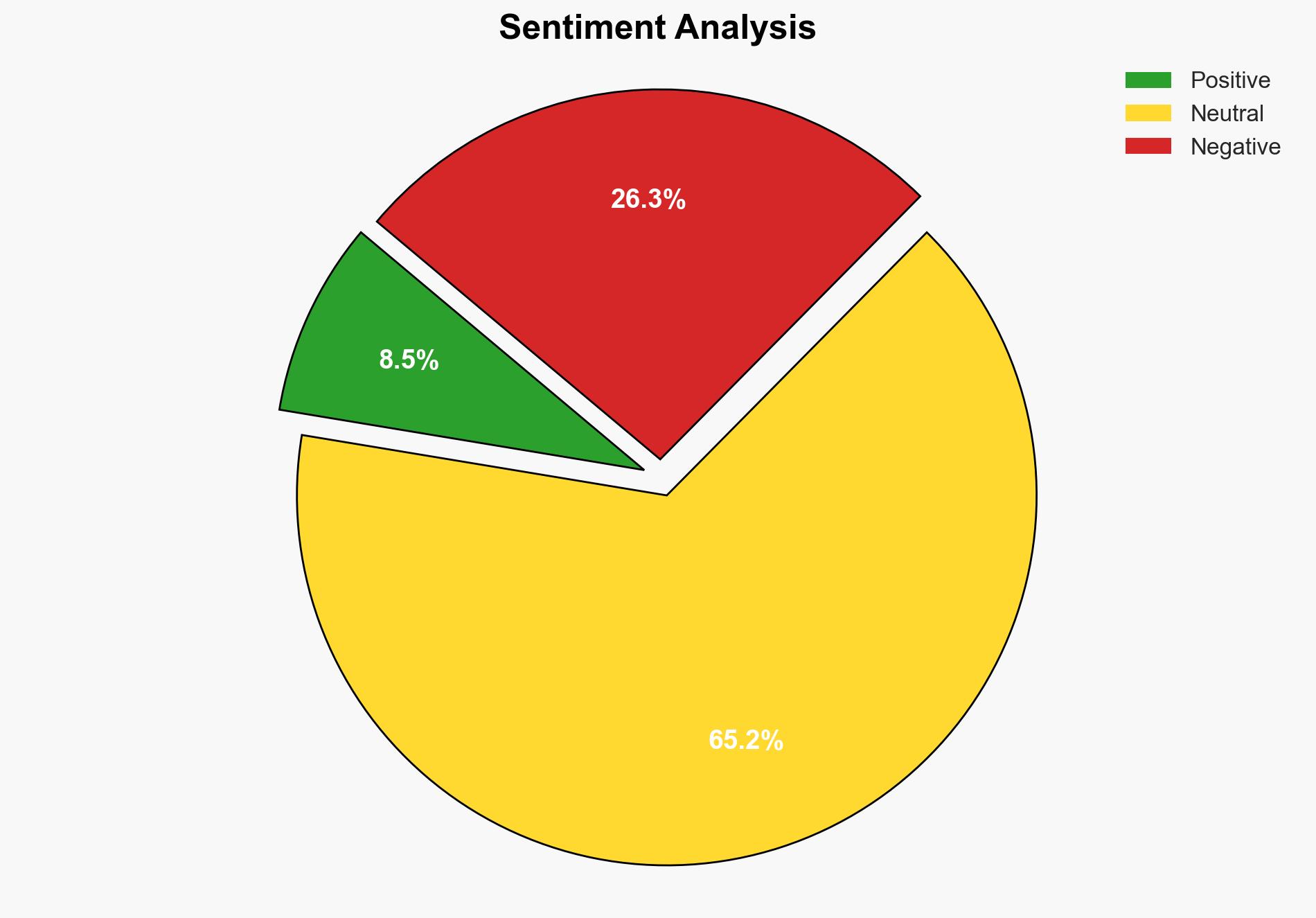Iran rebukes Canada’s new sanctions as deceitful in breach of international law – Globalsecurity.org
Published on: 2025-03-10
Intelligence Report: Iran rebukes Canada’s new sanctions as deceitful in breach of international law – Globalsecurity.org
1. BLUF (Bottom Line Up Front)
Iran has strongly condemned Canada’s recent sanctions, labeling them as deceitful and a violation of international law. The Iranian foreign ministry argues that these sanctions are politically motivated and contradict principles of the United Nations Charter. The sanctions target individuals and entities allegedly linked to weapons production and human rights violations. Iran denies involvement in the Ukraine conflict and criticizes Canada’s human rights record. The situation could escalate tensions between Iran and Western nations, impacting diplomatic relations and regional stability.
2. Detailed Analysis
The following structured analytic techniques have been applied for this analysis:
SWOT Analysis
Strengths: Iran’s strong diplomatic stance and ability to rally support from allies.
Weaknesses: Economic vulnerabilities due to ongoing sanctions and international isolation.
Opportunities: Potential to strengthen ties with non-Western allies and leverage international law.
Threats: Increased sanctions could further destabilize the region and harm Iran’s economy.
Cross-Impact Matrix
The imposition of Canadian sanctions may influence Iran’s relations with other Western countries, potentially leading to a unified stance against Iran. This could also affect Iran’s economic partnerships and trade agreements with neighboring regions.
Scenario Generation
Scenario 1: Escalation – Increased sanctions lead to heightened tensions and potential military confrontations.
Scenario 2: Diplomatic Resolution – Negotiations ease tensions and lead to a reduction in sanctions.
Scenario 3: Status Quo – Continued diplomatic stalemate with no significant changes.
3. Implications and Strategic Risks
The sanctions pose significant risks to regional stability and economic interests. They may exacerbate existing tensions between Iran and Western nations, potentially leading to retaliatory measures. The economic impact on Iran could lead to internal unrest and further destabilize the region. Additionally, the sanctions could influence global energy markets and trade routes.
4. Recommendations and Outlook
Recommendations:
- Engage in diplomatic dialogue to address the underlying issues and reduce tensions.
- Consider revising sanctions policies to focus on targeted measures that minimize humanitarian impact.
- Enhance intelligence-sharing and cooperation with allies to monitor developments and mitigate risks.
Outlook:
Best-case scenario: Diplomatic efforts lead to a resolution and easing of sanctions, improving regional stability.
Worst-case scenario: Escalation of tensions results in military conflict and further economic decline.
Most likely scenario: Continued diplomatic stalemate with periodic escalations and temporary resolutions.
5. Key Individuals and Entities
The report mentions significant individuals such as Issa Kameli and entities involved in the sanctions discourse. These individuals and organizations play crucial roles in shaping the diplomatic and economic landscape in the context of the sanctions.





